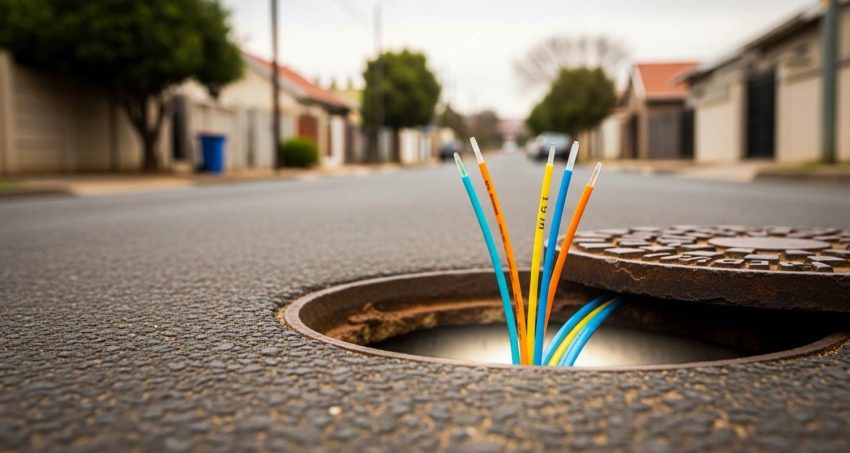 Fibre isn’t a luxury anymore – it’s as critical as water or electricity – but the service offered by South Africa’s fibre operators certainly doesn’t reflect this reality.
Fibre isn’t a luxury anymore – it’s as critical as water or electricity – but the service offered by South Africa’s fibre operators certainly doesn’t reflect this reality.
While specific data on the average call centre wait times for local fibre network operators is limited, general industry insights suggest that average handle times range from approximately six to 15 minutes for technical support or service-related inquiries. Considering that fibre drives vital things such as home security systems, digital access to solar installations and digital water management systems, then a 15-minute wait to resolve an issue is far too long.
Despite the fact that the internet is increasingly included in the category of essential utilities, it has yet to be officially acknowledged as such by the world’s regulators and lawmakers. Some countries have recognised internet access as a basic human right, but few exercise legislative oversight to ensure that service delivery meets certain standards.
For example, the South African government considers internet access a human right and developmental priority, but regulation focuses almost exclusively on the deployment of infrastructure. Compare that to Finland, where internet service providers are required by law to provide at least a 1Mbit/s connection to all residents and service levels are monitored.
The Covid-19 pandemic highlighted the importance of internet access. Among worldwide lockdowns, when access to information was vital, and when staying home had become literally a matter of life and death for people in higher-risk groups, the ability to access up-to-date advice or order vital food and supplies without leaving home was as essential as running water. This should have led to exponential growth in connectivity, not to mention faster, better service, but the fibre ecosystem in South Africa remained largely unchanged.
In its 2020 Global Social Mobility Index, the World Economic Forum included technology access as one of 10 pillars contributing, with equal weight, to a nation’s social mobility score, alongside factors such as health and access to education. Unfortunately, this has not translated to improved or expanded government oversight.
Limited
Instead of being considered essential service providers, fibre operators are seen as retail businesses and are allowed to function within very broad criteria. This means that speeds and service levels vary widely among different providers, leaving consumers stuck with service ranging from very poor to rarely excellent. Since there are only eight major fibre operators in South Africa, or a total of 38 operators when regional companies are included, consumer options – and recourse – are severely limited.
Some argue that the responsibility for customer service delivery should rest with ISPs, but there is only so much the ISP can do. Infrastructure failure leading to outages, for example, is completely out of their control, leaving consumers completely at the mercy of companies that have little incentive to improve service levels.
Read: Regulatory stasis has slowed fibre roll-out to the poor: Jannie Durand
Questioning whether or not the internet is a utility may sound like semantics, but by classifying the internet as a utility and truly recognising its importance to the fabric of society, we can start putting pressure on fibre operators to improve service delivery. Extended regulation and oversight will force companies to meet certain basic standards and will ultimately result in an improved communications landscape across the country.

For example, underserved communities are currently disproportionately burdened with substandard internet infrastructure compared to more affluent areas. This makes sense, because for-profit organisations can’t make sufficient returns from improving access. However, if government starts demanding that fibre operators meet basic service delivery standards that include investment into these areas, the entire country’s economy will benefit. Ensuring that speedy, efficient customer service is prioritised alongside improved internet access will help create a sustainable model for extending the benefits of the internet to all South Africans, ultimately providing new avenues for economic growth.
Read: Fibre should be considered ‘critical infrastructure’ in Africa: Google
I don’t even want to get started on the fiasco surrounding the roll-out of Starlink in South Africa. This subject has been used as a political basketball rather than a human right. No wonder South Africa now lags behind many countries in our continent’s ability to give ubiquitous access to the internet across the country.
Get breaking news from TechCentral on WhatsApp. Sign up here.

